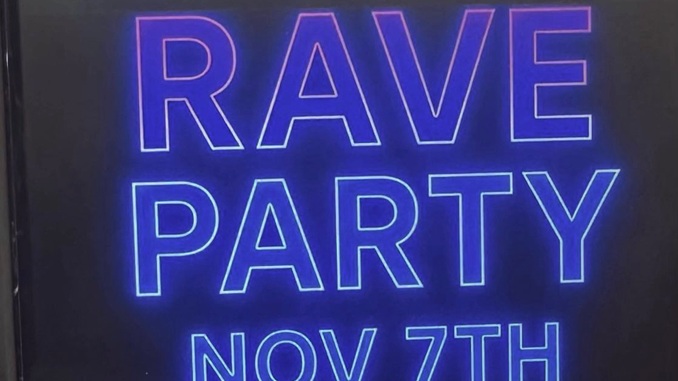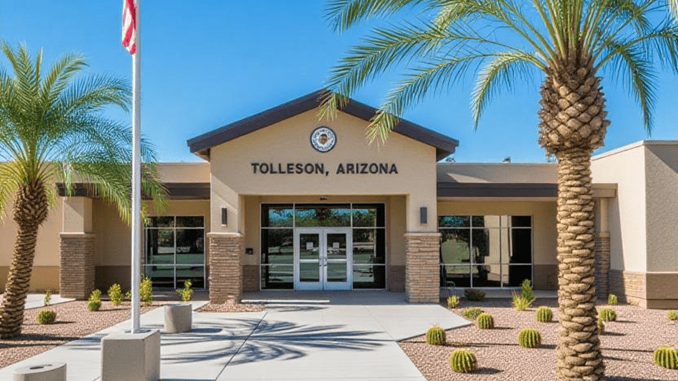
by Matthew Holloway | Nov 29, 2025 | Education, News
By Matthew Holloway |
Arizona lawmakers are urging the State Board of Education to fix the state’s Structured English Immersion (SEI) Endorsement Course Framework at its December 1st meeting, according to a letter from Rep. Michele Peña (R-LD23).
A group of State Representatives and Senators cosigned the letter from Peña, warning that existing rules risk placing Arizona out of compliance with federal funding mandates and allow the insertion of politics and racial rhetoric into courses designed to prepare educators, in violation of state law.
“Parents expect English-language instruction to focus on English-language instruction,” Peña said in a statement. “Instead, they’re finding courses with ideological material that has nothing to do with helping students learn English. The Board can’t ignore federal requirements, and it shouldn’t look the other way while universities inject political content into SEI training. The framework needs to be corrected now, and delays only create further problems for students, teachers, and the state.”
Peña warned the board that the present rule set “is harming instructional quality and undermining classroom integrity statewide.”
As noted by Peña, A.R.S. § 15-756.01 requires that the Board of Education “shall adopt and approve research-based models of structured English immersion.” In the letter, Rep. Peña adds, “SEI is intended to be a model focused only on research-based English language acquisition. That is all.”
She continued:
“The insertion of DEI-aligned language, political ideology, or racialized theories is not only outside the scope of the statute, but it also actively undermines the purpose of SEI by introducing content that divides classrooms, distracts educators, and shifts instructional time away from what the law actually requires. Arizona’s students deserve better than to have their language instruction diluted by ideological philosophies and turned into a political debate…
… We expect the Board not to delay corrective action or hide behind process barriers that were never required when these controversial provisions were inserted. Our students, teachers, and districts deserve a framework grounded in objective, research-based instruction, not ideological experimentation.”
The legislators who cosigned the letter include State Representatives David Marshall (R-LD07), James Taylor (R-LD29), Leo Biasiucci(R-LD30), Lisa Fink (R-LD27), and House Majority Leader Michael Carbone (R-LD25), as well as Senators Hildy Angius (R-LD30) and Tim Dunn (R-LD29).
As previously reported by AZ Free News, Arizona Superintendent of Public Instruction Tom Horne issued a similar statement in October, calling upon the Board to strip Diversity, Equity, and Inclusion (DEI) language from Arizona’s teaching standards.
Note: As of this report, the State Board’s public calendar shows the meeting scheduled for Dec. 1, 2025, as a meeting of the Accountability Technical Advisory Committee, while the regular State Board of Education meeting is scheduled for December 8th; this conflicts with the December 1st date provided in Rep. Peña’s statement.
Matthew Holloway is a senior reporter for AZ Free News. Follow him on X for his latest stories, or email tips to Matthew@azfreenews.com.

by Staff Reporter | Nov 26, 2025 | Education, News
By Staff Reporter |
The nation’s biggest union overseeing educators is prioritizing trainings to advance LGBTQ+ justice and defeat white supremacy as student outcomes continue to decline.
The National Education Association (NEA) plans to train educators on these topics through the 2025-26 Focus Academy schedule. Affiliate staff and member teams attend these academies to develop and implement issue organizing campaigns, per the NEA.
The NEA will kick off the holiday season with a three-day training on “Advancing LGBTQ+ Justice and Transgender Advocacy” the week after Thanksgiving.
The training is exclusive to members and allies of the LGBTQ+ community. It seeks to harmonize the LGBTQ+ ideology and strategize to defeat other ideologies opposed to it:
“With partners from the Center for Racial Justice, members of the LGBTQ+ community, and other experts participants will learn how to: establish common understandings about the identities under the LGBTQ+ community umbrella; develop a shared understanding of the anti LGBTQ+ policy landscape and how to develop counter narratives of inclusion and equity; deepen skills and strategies to confront implicit bias, micro-aggressions and stereotypes in the LGBTQ+ community; [and] develop a toolset of tactics for dismantling systems of privilege and oppression as it relates to LGBTQ+ educators and students.”
Within this academy, educators are trained on defaulting to the pluralization of genders, using pronouns, transitioning genders, and implementing the Gender Unicorn.
Then, to kick off the New Year, the NEA will train educators on “address[ing] white supremacy culture.” The NEA emphasized a need for individuals “highly skilled” in handling “white fragility and interpersonal oppressions.” Leaked materials show a term that seems to have fallen out of the wayside in public commentary: Critical Race Theory (CRT).
“Recently, [Republicans] have paired these attacks with fear-mongering about Critical Race Theory, mobilizing their base with a potent mix of racist and transphobic tropes,” stated the training materials.
This focus academy training will have educators complete a campaign plan that details what racial justice looks like:
“Participants will learn how to help themselves and others: establish a common language for talking explicitly about white supremacy culture in a campaign cycle; deepen skills and strategies to confront implicit bias, microaggressions, and stereotypes; develop a shared understanding of the levels of racism with a focus on a power analysis required to make changes at various levels; [and] develop a toolset for dismantling systems of privilege and oppression.”
Defending Education published leaked materials from these academies. Per these materials, NEA leadership harmonizes and equates the issues facing the advancement of LGBTQ+ ideology and Critical Race Theory.
The materials show that the NEA blamed the lack of public support on transgenderism for minors on the political right having “exploited” general ignorance of LGBTQ+ ideology.
“Over the last ten years, Republicans in state legislatures have increasingly turned to anti-transgender rhetoric and legislation as a powerful complement to their arsenal of racist dog whistles used to whip up fear and consolidate power,” said the materials.
The latest Nation’s Report Card by the National Assessment of Educational Progress yielded additional declines in scores across the board for math, reading, and science.
AZ Free News is your #1 source for Arizona news and politics. You can send us news tips using this link.

by Staff Reporter | Nov 22, 2025 | Education, News
By Staff Reporter |
One of the Scottsdale Unified School District (SUSD) governing board members was busted by the cops for a party attended by teens.
SUSD governing board member Matt Pittinsky threw a “rave party” for his teenage son’s birthday earlier this month that ended with police and an ambulance responding to the scene, per sources cited by the advocacy group, Scottsdale Unites For Educational Integrity.
Pittinsky’s son attends Brophy College Preparatory School, a private high school, where Pittinsky sits on the board of regents.
At a special meeting last week, one of Pittinsky’s neighbors addressed the board about the party. The neighbor said he witnessed a young girl taken to the hospital by first responders for alcohol poisoning. The neighbor questioned Pittinsky’s judgment, especially amid ongoing conversations about the potential closures of two schools: Echo Canyon School and Pima Elementary School.
“There was an underage girl hauled away in an ambulance for alcohol poisoning from a rave party at Mr. Pittinsky’s house,” said the neighbor. “Paradise Valley Police Department had to shut this mess down, and our neighborhood had a mess from it. It was quite the scene.”
Along with his SUSD seat, Pittinsky is an Arizona State University (ASU) visiting scholar for the Sanford School.
Pittinsky has also been CEO of Parchment, which manages and sends academic transcripts, and formerly CEO to Blackboard, a leading education software and learning management system company which he co-founded.
Blackboard received criticism over the years within the education and legal communities over alleged anticompetitive practices: lawsuits over alleged patent infractions and a steady acquisition of competitors that, essentially, forced educators to use them though Blackboard wasn’t their preferred vendor.
An invitation for the Pittinsky party posted by a since-deleted Instagram user, “nov.7.funcoverflow,” said the party would last from 8 pm to “GTFO” (an acronym for “get the f*ck out”), and told guests to “BYOE,” which stands for “bring your own everything.”
According to a letter from Pittinsky and his wife delivered to neighbors, the Pittinskys hired security to limit attendance to invited guests, and promised the party would last only until midnight.
However, eyewitness accounts said that police “shut down” the party several hours into the festivities. Eyewitnesses also reported at least one teenager was taken away from the party in an ambulance.
Scottsdale Unites For Educational Integrity urged parents and community members to address the Pittinsky party during the SUSD’s regular governing board meeting on Tuesday.
Much of the public comment on Tuesday’s meeting focused on voicing opposition to the proposed closures of Echo Canyon School and Pima Elementary School.
Those who did address the Pittinsky party questioned Pittinsky’s dedication to student health and safety.
Scottsdale resident Mike Bengert, a father and grandfather, asked for a complete, public investigation into the incident, as well as an apology and resignation from Pittinsky. Bengert’s remarks were met with applause.
“Hosting, permitting, or failing to prevent an environment in which underage drinking and medical emergencies could occur is deeply troubling,” said Bengert. “Why should the community trust your judgment on issues so critical to our public schools? Your actions suggest a disregard for the safety and wellbeing of the very students you are sworn to serve.”
AZ Free News is your #1 source for Arizona news and politics. You can send us news tips using this link.

by Staff Reporter | Nov 21, 2025 | Education, News
By Staff Reporter |
Over 100 out of about 400 schools in Arizona have advanced out of federal school improvement status, per the Arizona Department of Education.
There are over 2,800 schools in the state. That means approximately 14 percent (after this latest update) of all schools statewide remain on the Arizona Department of Education (ADE) list.
Schools on the federal list consist of those with low graduation rates and test scores per the Every Student Succeeds Act (ESSA), a federal law passed by the Obama administration in 2015 that, essentially, reauthorized the Elementary and Secondary Education Act of 1965.
ESSA was responsible for every state and district publishing a report card for public review, as well as publishing how much is spent per student at every school, broken down by federal, state, and local monies.
ESSA’s predecessor was the No Child Left Behind Act (NCLB), enacted in 2002. NCLB received criticisms for its heavily federal approach to education, where many thought the states could yield student outcomes better.
ADE identifies these schools — classified as Comprehensive Support and Improvement – Low Achievement (CSI-LA) schools — every three years. Schools have four years upon identification to exit this status.
CSI-LA schools are those that don’t meet the 60 percent proficiency, 20 percent growth or graduation rate, 10 percent English Learners achievement and growth, and 10 chronic absenteeism (K-8) or 10 percent drop out rate (high school).
The Arizona Department of Education monitors these schools through its Office of School Improvement.
Superintendent Tom Horne said in a statement that these schools’ advancements prove that dedication to the basics — namely through Project Momentum Arizona (PMA) — does work.
“The schools we are honoring today have proven that when students are challenged academically and class time is devoted to teaching core subjects like reading and math, test scores will go up, and students will succeed,” said Horne. “It is a highly effective program that emphasizes academic knowledge and helps educators do the right work to ensure that all students succeed.”
Horne hosted a press conference on Wednesday to praise these schools, including Roosevelt School District, which had four schools leaving the list. Horne also issued a similar announcement on Thursday.
PMA has schools select one or more from a list of guiding questions around which to frame their improvement plans. These questions focus on recognizing the specifics of desired student outcomes, evidence of student comprehension, highest-yielding instructional practices, responses to lack of student learning, planned responses to student mastery of materials, and goals for improving, cataloging, and saving work.
Spring state assessment results showed that an average of 33 percent were passing math, and 40 percent were passing English. These results aligned with those from the previous year.
COVID-19 caused student proficiency to drop significantly. They were on an upward trend, achieving 42 percent in math and English.
Oversight of failing schools may soon become more of a state problem, with ongoing efforts to dismantle the Department of Education.
Horne told The Center Square that he’s “pleased” with the Trump administration’s decision.
“[I am] pleased with the administration’s work to move the work of education back to the states and addressing the needless bureaucracy of the federal department,” said Horne.
AZ Free News is your #1 source for Arizona news and politics. You can send us news tips using this link.

by Jonathan Eberle | Nov 20, 2025 | Education, News
By Jonathan Eberle |
A community watchdog group is calling for a full stop to all major construction projects in the Tolleson Union High School District (TUHSD), citing overwhelming voter opposition and stark financial projections that point to a looming deficit that could reach into the hundreds of millions.
Citizens for Schools Accountability (CSA), a local 501(c)(4) organization focused on transparency and responsible spending, says the district should halt work on all ongoing and planned facilities including High School #8, a proposed domed stadium, and a new district office until an independent audit is completed and a clear financial plan is released.
The group also criticized Superintendent Jeremy Calles and Governing Board President Steven Chapman for declining to follow a board directive requiring a full budget presentation before any further action on High School #8 is taken.
The warning comes just weeks after voters decisively rejected both a bond and an override sought by TUHSD, a dramatic reversal from past elections in which district measures routinely passed by wide margins. CSA leaders say the election outcome underscores widespread public concern over spending, transparency, and priorities within the district.
“Continuing construction without public support or a sustainable funding plan represents a dangerous breach of fiscal responsibility,” the group stated in its announcement. According to figures cited from district financial documents, TUHSD has approximately $294.6 million in bond, fund balance, and state School Facilities Board (SFB) resources available. Yet the projected costs of its construction plan far exceed that total.
Even under the lowest cost estimates, the district faces a minimum shortfall of $95 million. Under more likely scenarios, the deficit could approach $200 million. “This district is on the edge of a financial cliff,” said CSA Chairman Kino Flores. “Any organization facing a minimum $100 million deficit would hit the brakes immediately. Yet TUHSD is accelerating.”
Flores said that between the voter rejection, the cost projections, and the pending audit, continuing construction would be “reckless and irresponsible.”
CSA argues that until these steps are taken, any continued spending could jeopardize the district’s long-term stability. The organization says its concerns are not philosophical or political but grounded in the district’s own data and the unmistakable rejection voters delivered at the ballot box. “The voters said no. The math says no,” Flores said. “Fiscal responsibility demands the board stop every non-essential building project until the audit is complete, and a transparent financial plan is presented to taxpayers.”
CSA leaders say they will continue monitoring district actions and expect the board to respect both the financial realities and the community’s clear mandate.
Jonathan Eberle is a reporter for AZ Free News. You can send him news tips using this link.

by Jonathan Eberle | Nov 15, 2025 | Education, News
By Jonathan Eberle |
Six Arizona campuses have been named Blue Ribbon Schools, a distinction announced Monday by State Superintendent of Public Instruction Tom Horne and the Arizona Department of Education, recognizing standout academic achievement and sustained student growth.
The schools earning the honor this year include the Academy of Math and Science in Peoria, Chinle Elementary School in Chinle, Empire High School in Tucson, the Maricopa Institute of Technology in Phoenix, Saint John Bosco Catholic School in Phoenix, and Ward Traditional Academy in Tempe.
Horne said the recognition reflects the department’s emphasis on academic rigor and measurable results.
“My primary focus as superintendent is on academic excellence, and these schools can be justifiably proud of this accomplishment because it is based on academic success,” Horne said. “Students and educators should always work toward continuous improvement in academic achievement, and Blue Ribbon Schools demonstrate that when schools lead students into challenging themselves, they will excel academically.”
The Blue Ribbon Schools program, now administered at the state level, highlights campuses that show strong performance on state assessments or demonstrate significant progress in closing achievement gaps among student groups. Established in 1982, the program is open to both public and private K–12 schools nationwide.
Arizona’s newly recognized schools will join a long-running tradition of campuses that exemplify high standards, strong instruction, and a commitment to raising student outcomes across diverse communities.
Jonathan Eberle is a reporter for AZ Free News. You can send him news tips using this link.





